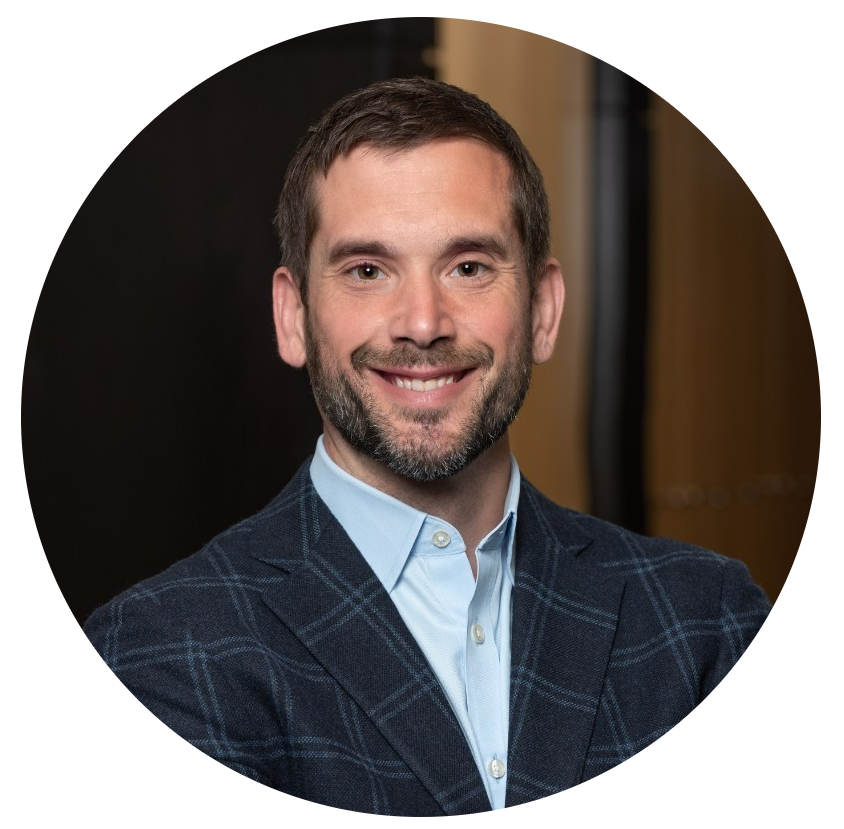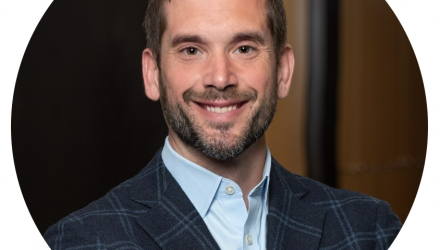Over the past month, I’ve written a bunch about the Future of Finance ahead of the Exchange conference that kicks off this weekend. A quick summary to catch you up:
- We’re facing multiple crises on multiple fronts, a “polycrisis” that can be boiled down to “exploitation > exploration.”
- Historically, humanity has a great history of exploring and innovating our way out of big problems through collective efforts.
- “Institutions” are how we’ve usually managed those collective efforts, but faith in institutions is at an historic low.
If you read too much of the popular coverage of any particular angle of the polycrisis — global warming, geopolitics, income inequality, runaway capital problems, erosion of societal norms, the replication crisis in academia, culture wars — it gets pretty depressing. In fact, one of my most recommended books of the last year is literally called “The End of the World is Just the Beginning.” (I don’t get invited to a lot of parties.)
But the truth is, I’m a massive optimist. My second-most recommended book is, “The Beginning of Infinity” which is a love letter to human progress. I truly believe we, the human species, can solve the big scary problems that face us, but a few things stand in our way. The key is figuring out what to pay attention to, then applying the right models.
Easy right?
The Distributed Cognition Problem
“By the way, everything changes constantly.
But I’m pretty dedicated. I’ll collect it all.
Frontalot got a little optimism installed,
got it dialed to the wall, now I think I’m omniscient.
Data-driven to decision, I’m on a mission
to take a listen to the interrelationships
twixt every locus at which any datum sits…
Gotta listen to the data in the day to day.”-“Small Data” – MC Frontalot
The biggest obstacle to solving big problems is our over-reliance on systems and institutions that have become ossified, and which no longer serve their core functions well. We’re going to be talking about this extensively at our Future of Finance sessions at Exchange next week (and we’ll livestream it to our YouTube channel, if you can’t attend in person).
The hyper-pursuit of efficiency, while also relying on free market dynamics to solve problems, has made us fragile. Many of the core models we use to run economies have proven to be plagued with issues, from inconsistencies in how the Fed models the U.S. economy to fundamental errors in how we conceptualize expected return.
You’d think the answer would just be, “Fix the institutions!” But that’s easier said than done. The challenge in fixing big systems and institutions is that, well, nobody is in charge of them.
To understand why that’s an issue, think of a space shuttle launch. Orbital launches are an intricate choreography, where mission control directors and sub-directors each report in with a “go,” before the rocket can leave the ground. That level of collective decision-making, also called “distributed cognition,” permeates human systems for good reason: It works. We were bred for it, evolutionarily speaking.
It may feel like an affront to the rough-and-tumble individualism on which America’s brand is built, but there’s increasing scientific consensus that our species level superpower is actually distributed cognition. By common measures such as individual deduction or working memory, human beings on the individual level aren’t much smarter than our primate brethren (and, arguably, are even behind). Distributed cognition is what gives us the edge to survive–and thrive.
So how do you tap into the power of distributed cognition to rebuild systems? As MC Frontalot tells us, “Gotta listen to the data in the day to day.” Or as I interpret it: We have to keep our eyes constantly open for the right data, continuously.
Relevance Realization & The Wealth Manager

Tom Morgan, Director of Communications and Content at KCP Group
That skill has a name: relevance realization. It’s a concept that my partner for the Future of Finance session, Tom Morgan of the KCP Group, has been writing about over the past year or so. I asked him to help me frame this part of the conversation for readers:
Dave Nadig: In a nutshell, what’s the best way to understand what “relevance realization” is?
Tom Morgan: We are now deluged with a daily tsunami of information, so relevance realization (RR) is predominantly about what information we choose to ignore. Cognitive science associate professor and generally wise person John Vervaeke has made RR central to his work. His definition is: “The ability to ignore vast numbers of options (hopefully poor ones) and focus on a small set of potentially fruitful ones.”
Nadig: Is relevance realization just the base state of awareness? Or is it a skill, like mnemonic memorization?
Morgan: RR describes an evolutionary path to wisdom. Wisdom is knowing exactly what to do at the right time. If you have a very accurate map of your environment, you can act decisively and correctly. It’s a skill that can be cultivated.
Nadig: How do we get better at figuring out what in our environment is important? What does “important” actually mean? Or is it relative?
Morgan: There is information that is relevant to you in your job or life; that [information’s] more relevant to you. We get better at cultivating RR through maintaining a balance between awareness and analysis.
This is a constant interplay between what grabs our attention and what holds our attention.Our society has somewhat neglected that the traits that determine relevance are emotion, sensation, and intuition. These are far more denigrated in our society than analysis, logic, and complex language. I think one of the most interesting, and heretical, ideas in the entire topic is that there’s an energetic gradient to information. Just like food, some of it carries greater nutrition, and we need to constantly increase our sensitivity to that energy.
Nadig: You work for a wealth manager; why does the wealth management industry care about a concept as heady as cognition?
Morgan: Because wisdom contributes across every domain of your life. If you’re better at your job, you can make better decisions. You get better at filtering signal from noise. That’s obviously critical in the investment business. Studies have also shown it correlates with flourishing, happiness, and openness. It’s a path worth pursuing for its own sake.
Nadig: One of my arguments on stage will be that because of the declining influence of institutions, we’re heading towards a corporate oligopoly, a hyper-capitalist world. So how do we instantiate things like “better relevance realization” into institutions? Corporations?
Morgan: I think this is wildly difficult. But all evolutionary changes are emergent, which is to say they are bottom-up. And they tend to hit phase-change tipping points extremely rapidly and unexpectedly. A central theme of the whole discussion we’re having is the persistent failure of top-down interventions. This means that individuals should start with themselves. This means pursuing information that grabs their attention. If we can move from a reductive to holistic perspective on an individual level, we’re marginally more likely to end up with leaders who understand the risks of unintended consequences.
This gets to the heart of why I’m so excited for the Future of Finance session. I don’t want to suggest that the seven of us on stage next Monday are going to have all the answers, or even any of the answers, to the specific problems of the polycrisis. None of us has the magic key to climate change, for example, or regulatory capture, or wealth inequality, or cultural polarization.
But what we will do is shake the snow globe a bit and explore these thorny problems from new angles. We’ll be re-examining our current perspectives and biases on the role of governments, corporations, innovators, and, yes, regular old investors. We’ll crack open our filters, and I fully expect to have my own priors challenged and my own sacred cows–well, if not hamburgerized, then at least dragged to a few new pastures.
Or as Frontalot says it:
“Data-driven to decision, I’m on a mission
to take a listen to the interrelationships
twixt every locus at which any datum sits.”
Dave can be found on Twitter and LinkedIn at @DaveNadig
Tom Morgan can be found on Twitter @tom_morganKCP
To learn more about the event and register, please visit the Exchange website.
